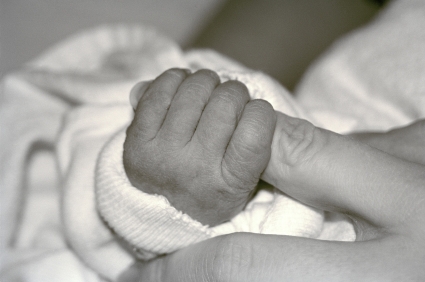
A few weeks ago, we brought our first-born home from the hospital. For those readers who are parents, you know that there is nothing quite like those early days of parenthood. As I reflect back on the first two weeks of having our child at home, I am startled by how much time was spent preparing for the process of giving birth contrasted with the preparation for when the child actually arrives. Although I gave birth without the benefits of an epidural or other pain medications, I think that process was far less challenging than those first couple weeks at home. Life changes in radical, and for me, unanticipated ways when a child is added to your family. Adjusting to those changes is well worth the reward, but the adjustments are difficult nonetheless.
For me, the biggest challenge was the recognition that this little person was totally dependent on me. Because we have chosen to provide nourishment for our child through nursing, I was on call 24-7 if she was hungry. Two-week olds don’t really understand their momma’s need for a schedule or structure, and so their demand for food isn’t contingent on the convenience of providing it. Similarly, their sleeping patterns are not formed as a function of how much or how little sleep their parents are used to getting. Providing everything this little life needs is time-consuming and exhausting, and there appears to be little appreciation on the child’s part for doing so.
Yet, as I ponder these things, I can’t help but learned from my little one. After all, while it seems that she is completely dependent upon me, in reality, the both of us are completely dependent upon God (Acts 17:28). If I were to emulate in my relationship with God the trust and assurance that she displays towards me, not only would be relationship with Him be deeper and stronger, but I would be more steadfast as I walk the path that He has prepared for me. If I were to turn to Him as quickly as my hungry child turns to me, I would be better equipped to do the work to which He has called me. Instead, I’m afraid that I am quick to mirror my child’s seemingly lack of appreciation, while ignoring the other lessons that her dependence illustrates.
The goal for my child is that one day she will outgrow her dependence on me. It is our hope that she will one day be able to feed, provide and take care of herself and her ability to do so will be a mark of her maturity. For the Christian, the exact opposite is true. A mark of maturity is their increasing dependence upon their heavenly Father. As we do so, not only do we become like little children (Mt. 18:3), but we increasingly walk as Jesus did (I John 2:6; John 5:19).